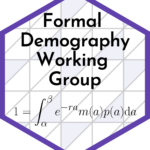*New* Spencer Foundation Announces Collaborative Rapid Response Bridge Grant Opportunity (5/30/25)
|
In the face of recent abrupt shifts in federal funding for education research, including large-scale terminations of National Science Foundation (NSF) research grant awards, the Spencer Foundation, The Kapor Foundation, The William T. Grant Foundation, and the Alfred P. Sloan Foundation have developed a rapid response bridge grant opportunity for impacted scholars. This rapid response bridge funding opportunity is for scholars and teams whose grants have recently been cancelled by NSF. While it is impossible for private philanthropy to close the gap left by federal funders, we can provide modest grants to mitigate some of the impact on scholars, projects, and project teams.
To be eligible for these grants, scholars must: (1) be working on research on STEM and education (including AI and CS, graduate education and MSIs, and scholarship that aims to reduce inequality), and (2) have had a recently terminated or cancelled grant from NSF. These $25,000 grants are for activities to address immediate needs following grant cancellations, including completing a wave of data collection, analyzing already collected data or writing, thoughtful project closure with community partners, or preparing grant proposals to continue the research. Learn more here.
(read more) |
 |
*New* Invitation to Join the Population and Environment Working Group
|
If you are a graduate student or post doc conducting environmental demography research, join the biweekly Population and Environment Working Group meeting organized by Sara Ronnkvist (sronnkvist@wisc.edu). This informal working group meets every other Friday at 10 am CST. Please fill out this google form to join the listserv and be notified of future meetings.
(read more) |
 |
*New* Two Upcoming Climate Primer Seminars
|
Join the Center for Aging, Climate, and Health (CACHE) for two upcoming Climate 101 webinars!
On May 15th, Prof. Kris Karnauskas of the University of Colorado Boulder will cover the basic energy balance of the climate system, the greenhouse effect, a few examples of the physical symptoms of global warming that we are observing with state-of-the-art technology including melting ice, ocean warming and sea level rise, and how we know these changes are being caused by anthropogenic emissions of greenhouse gases.
On June 5th, Dr. Christian Braneon of the City University of New York (CUNY) Institute for Demographic Research (CIDR) will cover climate variability, the components of climate risk, and insights on developing projections of future climate for interdisciplinary research. Learn more and register here.
(read more) |
 |
*New* Social Science Research Council Announces Updated DATA2GO.NYC Tool
|
Since 2006, the Social Science Research Council’s Measure of Americaprogram has worked with local and state governments to integrate and report health, education, and income data in ways that enable communities to better understand their residents’ needs. We are excited to report that Measure of America has now launched an updated version of DATA2GO.NYC, their free online mapping and data tool. DATA2GO.NYC lets users explore over 400 indicators of well-being and access to opportunity across New York City’s nearly 200 neighborhoods.
(read more) |
 |
Data Access With Federal Administration’s Transition
|
The challenges of data access during federal administrative transitions can happen every four years. What follows are some resources that might be useful. We will continue to update this blog post with new information. If you have any links that could be helpful, please send csde@uw.edu your updated and helpful information. We know that what follows may not provide you with the exact data you need, so let us know what you need and what’s missing and we can try to find where it is located.
(read more) |
 |
Keeping Up With UW-Relevant Federal Policy Updates and Federal Administration Research Policy
Opportunities to Publish Research Policy Briefs with the Association of Population Centers
|
CSDE is a member of the Association of Population Centers, and through them can offer you or your colleagues the opportunity to have new or forthcoming research that you want to share with policymakers, journalists, educators, or other non-academic audiences. The Population Reference Bureau (PRB), in collaboration with APC, is working to improve the dissemination of population and reproductive health findings. If you have peer-reviewed research on population dynamics, population health, or reproductive health that you would like to share with a broader audience in an easily digestible format, APC and PRB may be able to help. To learn how, visit their website and take a look at recent research policy briefs.
(read more) |
 |
Preprint Opportunities through Association of Population Centers
|
CSDE is a member of the Association of Population Centers and through them can offer you and your colleagues access to their preprint publishing platform. Research Scientists, Postdoctoral affiliates and faculty are invited to submit to the APCA Working Paper Series which gathers and disseminates original population science research papers. These working papers are authored or coauthored by scholars who are faculty or postdoctoral affiliates of the Association of Population Centers (APC) population centers.
(read more) |
 |
*New* UW Libraries Workshop on Community-Engaged Scholarship (5/14/25)
|
More Than Citations: Leveraging Author Profiles & Altmetrics for Greater Engagement
Wednesday, May 14: 1:00-2:00pm on Zoom
Understanding your research impact goes beyond traditional citations. In this workshop, we’ll explore how author profiles help showcase your publications and how altmetrics provide real-time insights into the broader reach of your work. Learn how to track online engagement, connect your research to global conversations, and enhance your visibility using tools like ORCID, Dimensions author profiles, and the Altmetric Bookmarklet. Whether you're looking to strengthen your online presence or demonstrate impact for funding and career opportunities, this session will provide practical strategies to make your research stand out. Sign up here.
(read more) |
 |
*New* College of Built Environments Climate Solutions Symposium (5/14/25)
|
The College of Built Environments invites you to the second annual Community of Practice: Climate Solutions Symposium — an evening of conversation, connection, and celebration of the work CBE faculty and students are doing to advance climate solutions.
Enjoy a light reception and explore posters showcasing climate-related research, teaching and learning from across the college. RSVP to attend the event.
(read more) |
 |
*New* Formal Demography Working Group Monthly Meeting (5/16/25)
|
The Formal Demography Working Group aims to bring together formal demography scholars and those interested in formal demography to discuss recent and classic work, brainstorm new ideas, and to foster new collaborations. The next meeting will be next Friday, 16 May at 11:30am ET. Hampton Gaddy from the London School of Economics will speak about ‘Challenges in Estimating Crisis Mortality: Spatial Heterogeneity, Endogenous Incompleteness, Sample Size, and Ad Hoc Methods.’ Here is the Zoom link for the event.
Abstract: Accurately estimating the mortality of crises can be methodologically difficult. Researchers often use ad hoc methods with biases that have not been systematically explored, or they apply ‘standard’ demographic methods that rely on assumptions that may be difficult to test in contexts of interest. In this talk, I first review the influence and bias of a class of ad hoc methods that estimate death tolls by extrapolating population counts before and after a crisis and subtracting the projected values (which I term the growth rate discontinuity method, or GRDM). Then, I will describe two interrelated problems that come from estimating excess mortality at different spatial scales. On one hand, when there are multiple mortality crises in a period of interest, spatially disaggregated data may be required for identifying the true baseline mortality for any one crisis; without sufficient disaggregation, death tolls will be underestimated. On the other hand, spatial aggregation is needed to meet the minimum population size required to estimate excess mortality precisely; without sufficient aggregation, death tolls will be underestimated or overestimated, depending on context. Finally, I will briefly discuss biases that arise when the completeness of mortality data in excess mortality models is not assessed.
(read more) |
 |
Attend the Office of the Provost’s Research Resilience Series on Disappearing Data (5/19/25)
|
The Office of the Provost’s Research Resilience series will host a panel discussion, “Disappearing Data Panel & Discussion: Recoveries, Repositories, and Resiliencies,” on Monday, May 19th from 9:30am to 11am that will be facilitated by CSDE Director Sara Curran. This panel presentation will provide an overview of the challenges surrounding the loss of data, including data that is removed from publicly available sites, national surveys that are canceled, and standard survey measures or data changed for non-scientific reasons.
(read more) |
 |
Apply for Harry Bridges Center WA State Labor Research Grants (5/22/25)
|
Each year, the Harry Bridges Center for Labor Studies seeks proposals for policy-oriented research directly relevant to policymakers in Washington State. All University of Washington faculty, full-time lecturers, and UW graduate students sponsored by a faculty member are eligible to apply.
Up to $15,000 is available for each grant. Depending on available funding, awards may include a tuition waiver for graduate employees. Please note this waiver does not extend to students in fee-based programs.
(read more) |
 |
York University Centre for Refugee Studies 2025 Summer Course – Climate Migration Futures: Shaping the Research Agenda for 2050 (Application Deadline 5/25/2025)
|
For over two decades, York University’s Centre for Refugee Studies has run an internationally acclaimed, non-credit professional development Summer Course that brings together practitioners, policy makers, and researchers to learn together about the most pressing forced migration and refugee issues.
All participants who complete the full course receive a York University Centre for Refugee Studies Summer Course Certificate. Learn more here.
(read more) |
 |
ICPSR Summer Workshop on Applied Methods for Studying Structural Racism, Sexism, and Other Systems of Oppression (5/26/25)
|
The Health and Medical Care Archive, funded by the Robert Wood Johnson Foundation, is sponsoring a workshop during the annual ICPSR Summer Program in Ann Arbor, Michigan. Be sure to apply for this workshop in advance––enrollment is capped at 25 participants. Apply by 5/26/25.
(read more) |
 |
Robert Wood Johnson Foundation Rapid Response Opportunity (5/28/25)
|
The Robert Wood Johnson Foundation released a request for rapid response grants focused on racial and indigenous health equity. Applicants whose health equity research projects* have lost federal funding are eligible to apply. Documentation demonstrating impact is required (e.g., a termination letter). The grants are available through the RWJF Evidence for Action (E4A) initiative. Learn more and apply here, or attend a weekly E4A office hour here.
(read more) |
 |
IMPRS-PHDS: Call for applications (5/30/25)
|
CSDE collaborates with the Max Planck Institute for Demographic Research (MPIDR) in a doctoral training program called the International Max Planck Research School for Population, Health and Data Science (IMPRS-PHDS). This program is based in Rostock, Germany, but includes 12 doctoral programs in the U.S. and Europe. CSDE has one IMPRS-PHDS fellowship application slot available to current CSDE Trainees. The fellowship funding will support a one quarter research stay at the MPIDR any time between July 1, 2025 and June 30, 2026.
(read more) |
 |
*New* CACHE Issues Call for Seed Grant Proposals (6/20/25)
|
The Center for Aging, Climate, and Health (CACHE) recently announced seed funding for projects integrating social and environmental data to examine the intersections of aging, climate, and health. CACHE anticipates making 2-3 awards of $20,000 and several smaller awards at $7,500. The deadline to apply is June 20, 2025. Learn more and apply here.
(read more) |
 |
Northwest Climate Adaptation Science Center Faculty Fellowship Program (7/15/25)
|
The Northwest Climate Adaptation Science Center is now accepting applications for its 2026 Faculty Fellowship Program, which supports research related to climate adaptation in Northwest natural and cultural resource management as well as training in the principles and practices of co-producing decision-relevant science. This is a “last-mile” program that funds activities aimed at enhancing the usability of existing research for natural resource managers.
The NW CASC invites applications from faculty and non-faculty scientists with primary investigator status at University of Washington, as well as Boise State University, Northwest Indian College, Oregon State University, Portland State University, University of Montana, Washington State University and Western Washington University.
(read more)
|
 |
Sign up to join the Early Career listserv!
|
We invite early career faculty affiliates to join our new mailing list, csde_earlycareer. Among other things, this is the way to find out info about our quarterly Early Career Affiliate happy hours, and you won’t want to miss those! These will be a great way to meet up with other junior scholars in a fun and casual atmosphere over snacks and drinks. Who counts as early career, you ask? Typically we mean folks who are pre-promotion (i.e. assistant professor or equivalent), but we're not strict! Join the list here (Please note - this is for faculty only - we are strict about that. Sorry, all others!)
(read more) |
 |
|
|



